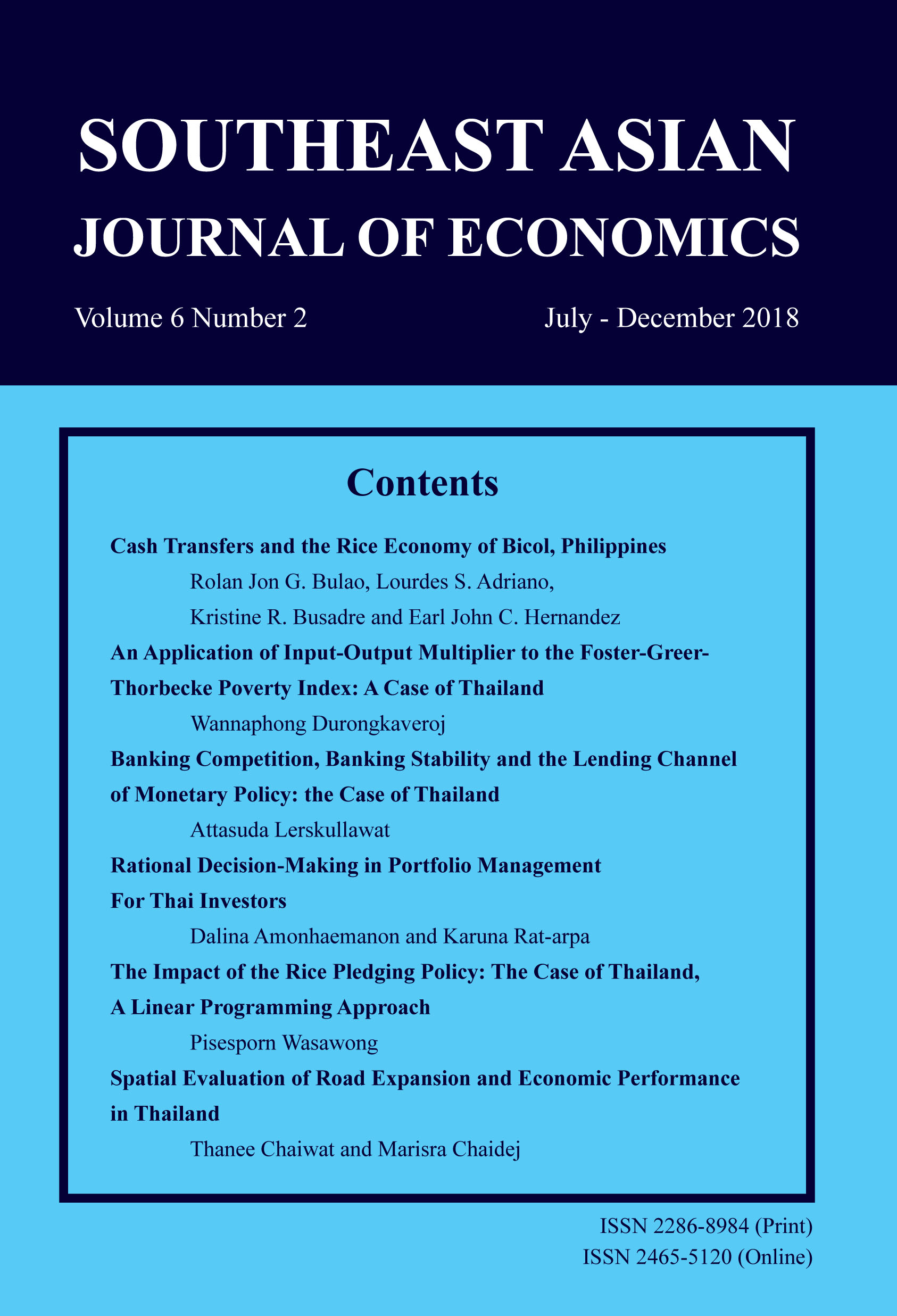Role of the Oil Fund in Thailand: Past, Present, and Future
Keywords:
Oil Fund, Price Stabilization, Social WelfareAbstract
This report investigates the role of the oil fund as a price stabilization instrument during the period 2004 through 2012 for Thailand. Before the emergence of gasohol and biodiesel in 2007 the oil fund had destabilizing effects on the costs and retail price of gasoline and high speed diesel but had stabilizing effects after the emergence of gasohol and biodiesel. In addition to the stabilizing effects, the cross price subsidies mainly between the gasoline octane 91 consumers and the biodiesel consumers are the results of the oil fund utilization. A two way price stabilization has been shown to decrease social welfare from its expected deficit in the oil fund account. A one way price stabilization that utilizes the oil fund as a price stabilizing instrument has been shown to increase social welfare. Under the one way price stabilization, the oil fund is always in surplus and is reimbursed to the oil traders at the end of a given period. A one way price stabilization can be implemented conveniently under the existing retail price structure. The gains from a one way price stabilization have been shown to be insignificant for gasoline and high speed diesel but significant for gasohol and biodiesel.
Downloads
How to Cite
Issue
Section
License
The submission of a manuscript implies that the paper is an original work and has not been published elsewhere. The author(s) authorize the journal to reproduce or distribute the paper in printed or other electronic forms.







